EU PPF6 – Energy Efficiency Study Tour
Lisbon and Madrid, March 2nd to 6th 2020
Тhe EU PPF6 project unit, as part of its Capacity building component, organized and realized Study tour on Energy Efficiency and thermal rehabilitation of buildings, in Spain and Portugal from 2nd to 6th March 2020. The main objective of this study visit was to familiarize the EU PPF6 participants and enhance their knowledge and comprehension of a series of relevant Energy Efficiency topics, essential for their work.
The first day in Lisbon was dedicated to introduction of an EU funded programme PO SEUR – Operational Programme for Sustainability and Efficient Use of Resources. Their presentation focused on the management of the PO SEUR programme, its implementation and rehabilitation of public buildings and mechanisms used to assess its results. As a well-known example of low energy office building, the EU PPF6 group visited the National Energy and Geology Laboratory (LNEG), situated in the Solar XXI building where they got a detailed explanation of the structural choices adopted to optimise the energy efficiency.
In the morning of the second day, the group visited two relevant institutions for implementation of the energy efficiency policies in Portugal: Directorate-General of Energy and Geology (DGEG) and ADENE, the Portuguese Agency for Energy. The EU PPF6 beneficiaries gained a general view of the Energy Efficiency policy in Portugal, in line with the EU targets, with details of the partnership agreement between Portugal and the Commission, the stakeholders involved, and the types of operations realised. Moreover, they also got an overview of the Energy Performance of Buildings in Portugal, detailing the necessary directives, as well as the certification systems and requirements in the country. The last session that day was dedicated to the Energy Efficiency in Public Administration Programme “ECO.AP”, aimed to achieve 30% energy efficiency level in agencies and services of the public аdministration. It is operational through the nomination of energy officers, implementation of action plans and measurement activities.
The third day mostly took place at the Spanish Institute for Fiscal Studies (Instituto de Estudios Fiscales, IEF) in Madrid. The participants from Serbia were welcomed by two representatives from the Directorate General of European Funds and had an opportunity to hear about the objectives defined to implement a Low Carbon Economy in Spain, in line with the EU requirements. The use of European Regional Development Fund (ERDF) funds to attain such objectives was also elaborated in depth. Afterwards, the visit of the EU PPF6 group to the future headquarters of the Ministry of Foreign Affairs, currently under rehabilitation, clearly illustrated how to apply strict energy efficiency regulations in renovation of a public building.
The EU PPF6 beneficiaries got acquainted with two EU funded projects for rehabilitation of public buildings: the REBECA network and PAREER programme in Spain, and their experience on how to obtain and manage EU funds, on how to monitor and report results as well as deal with challenges.
Throughout the course of the fourth day, some specific examples of successful energy efficiency projects implemented were given by the Spanish Institute for Diversification and Saving of Energy (IDAE), whose role is to manage ERDF programmes as an intermediate body. In addition, their presentation on the Energy Efficiency Directive (2012/27/EU Article 5) provided a number of details about the Directive objectives, requirements and measures to be implemented. It also addressed the whole application process needed to obtain funds and present the technical solutions adopted to meet this need.
The ERDF Management System for 2014-2020 programming period in Spain was presented by the Senior Advisor from ERDF Management Unit of the DG European Funds on March 06th 2020. The extensive presentation detailed the management and certification processes, the authorities involved, the regulations, and operations. The amount of details and direct references to the EU regulations included in the presentation were welcomed by the participants and gave way to fruitful discussion later.
To close the last morning activities, the EU PPF6 beneficiaries travelled to the Peseta metro station, where they could visit the Reversible Cell, an EU funded innovative mechanism used to produce and distribute energy. This field visit showed a specific innovative solution developed to improve energy efficiency, while reducing costs and greenhouse gas emissions.
In total, eleven representatives from MEI, RAREI, MME and the City of Belgrade participated in this study visit. Besides sharing of knowledge and experience regarding the use and management of EU funds for implementation of Energy Efficiency projects and programmes, the contacts made during this site visit might lead to reinforcement of relations between representatives of national and regional institutions from different countries dealing with energy efficiency issues. This is essential to build upon respective experiences, strengthen the knowledge on an essential sector for the EU policy, and consolidate professional expertise at an international level.
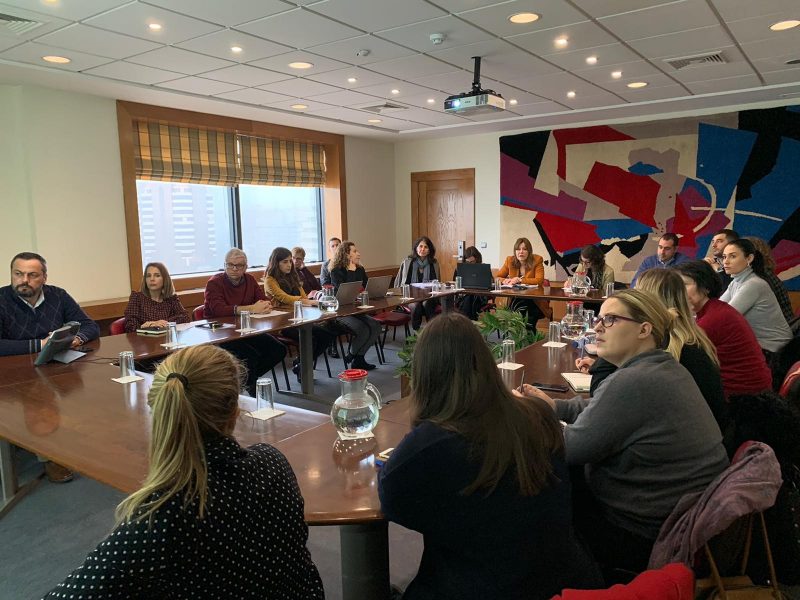
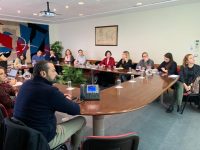
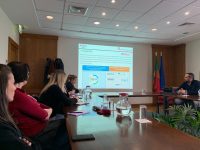
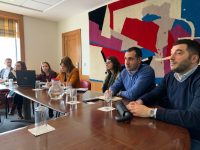
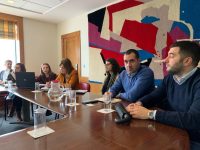
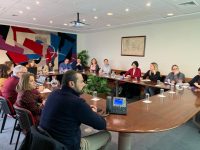
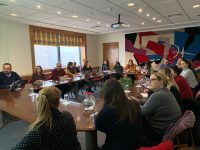
Social Media links